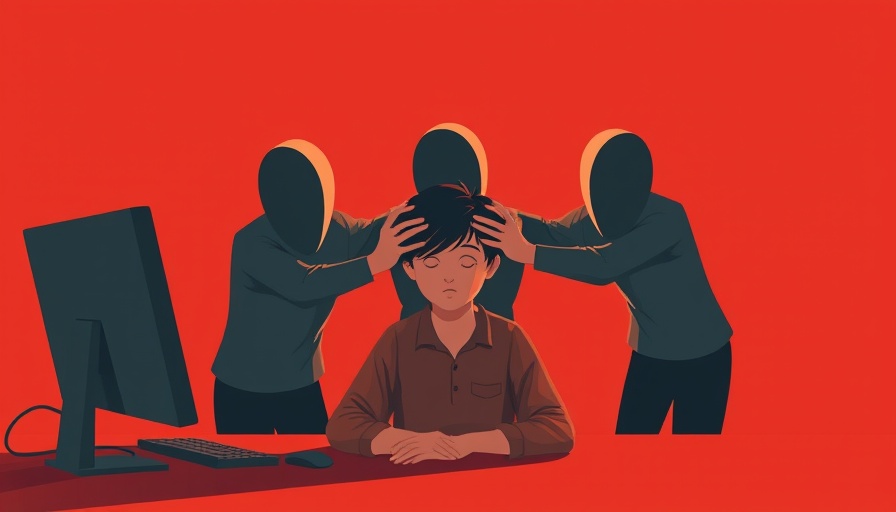
Understanding Bullying Through Compassionate Parenting
Recent discussions surrounding child behavior have highlighted the delicate issue of bullying among school children. With 42% of students reporting incidents of bullying, it becomes crucial for parents to instill understanding and compassion in their children. One father's viral response to his son's bullying behavior offers a refreshing perspective on how we can foster kindness instead of punitive fear in our children's learning process.
Why The Dad's Approach Resonated
In a heartwarming Instagram video, a father addresses his six-year-old son after he admitted to hitting a classmate. Rather than reacting with anger or scolding, the father engages in a thoughtful dialogue. He strategically prompts his son to reflect on his actions; asking questions like, 'What complaint came in, beta?' and 'Did she do something wrong?'. This technique encourages self-awareness, steering the boy towards understanding the impact of his actions.
Teaching Principles Over Punishment
In the video, the father emphasizes the concept of choice – allowing his son to contemplate the type of person he wants to be. 'You can either be the hero or the villain,' he says, reinforcing the importance of personal agency in ethical behavior. By presenting moral dilemmas, the father cultivates an environment for healthy, honest communication. As a result, the boy expresses a clear preference to be a 'hero,' indicating an internalization of values rather than mere compliance.
The Role of Apologies in Learning
Demonstrating accountability, the father takes his son to apologize to the classmate he bullied. This action not only reinforces the impact of one's actions on others but also integrates important social skills into the child's life. Apologizing teaches children humility and the significance of repairing relationships, creating a full-circle moment of accountability and emotional growth.
Viral Response: Changing Parenting Norms
The internet's reaction to this video has been overwhelmingly positive. Many users highlighted the necessity of nurturing gentle and understanding parenting styles, stating, “This is healthy parenting.” The narrative around parenting is gradually shifting from punitive approaches to those that prioritize emotional intelligence and critical thinking. A user commented on the importance of fostering a child's consciousness about morality, indicating that these learned lessons echo well into their future.
Why Learning About Bullying Matters
Understanding the nuances of bullying is imperative as parents navigate their children's formative years. The incident of bullying, even at a young age, can instill a fear of authority or encourage wrongful behavior. This father’s technique serves as a model of how patience can yield better results than fear. By framing bullying as a choice rather than a trait, he allows children to engage deeply with the notion of kindness and empathy.
Promoting Kindness Over Violence
The father, through his calm demeanor, indirectly teaches that true strength lies in kindness, while violence denotes weakness. This message is critical in a society grappling with rising aggressive behaviors among youth. Raising children aware of their options encourages them to be thoughtful citizens in their schools and communities, ultimately reaping the societal benefits of less bullying and a nurturing environment.
Takeaways for Modern Parents
As we reflect on this story, it becomes evident that proactive and understanding parenting is key in today's landscape. Parents are encouraged to engage in open dialogues with their children about feelings, intentions, and consequences. Responding with patience and love can cultivate a child's capacity for empathy, helping to shape a better future for all.
Your Turn: How Will You Approach the Conversation?
If you found value in this discussion, consider sharing it with other parents. Engaging in these conversations can help shape a community of understanding and responsibility toward children's behaviors, promoting a cord of kindness in our homes and schools.
 Add Row
Add Row  Add
Add 




Write A Comment